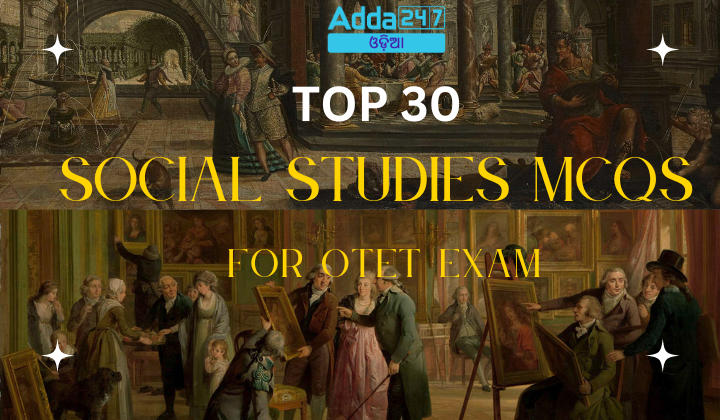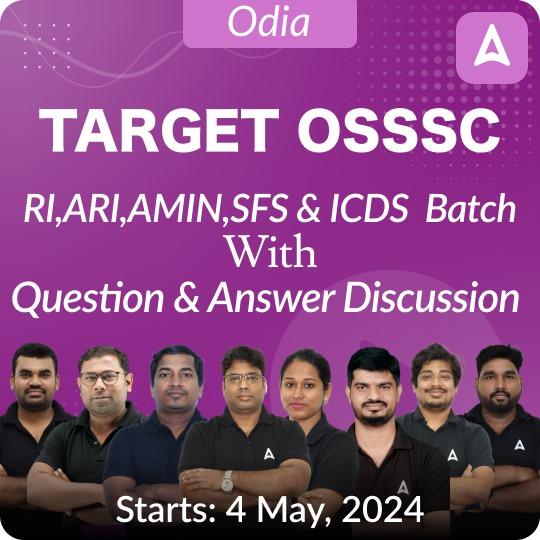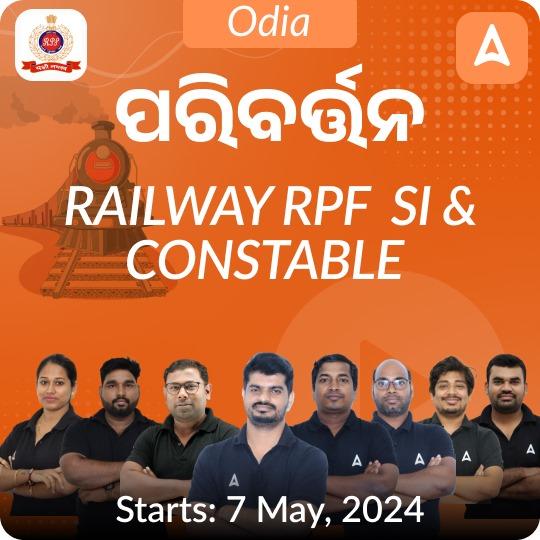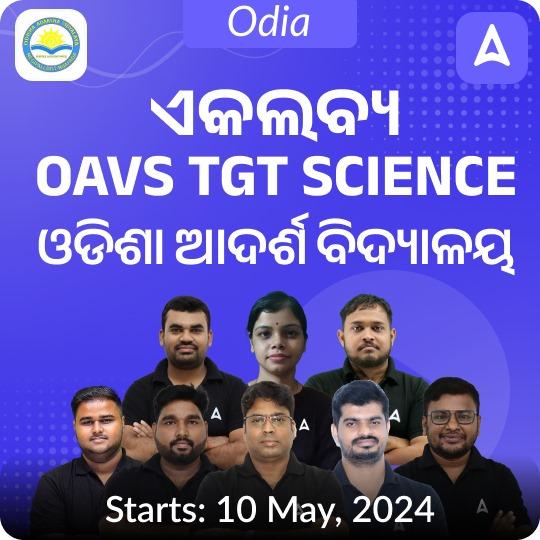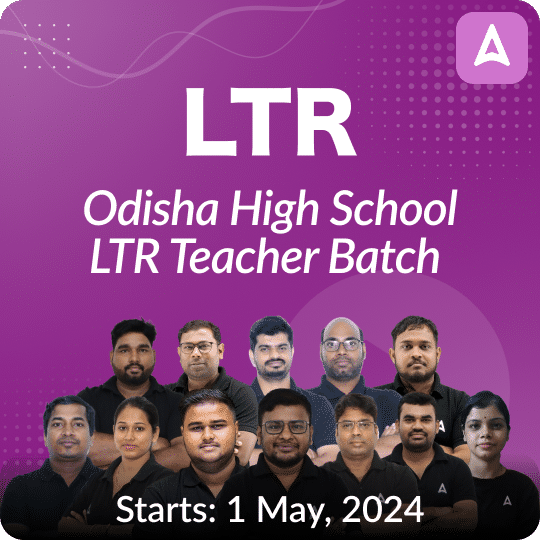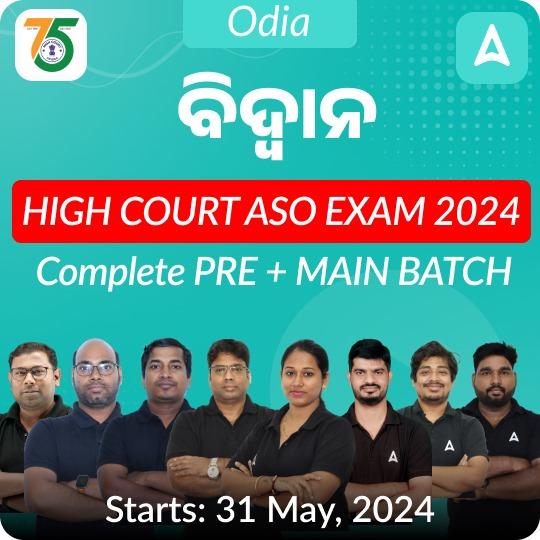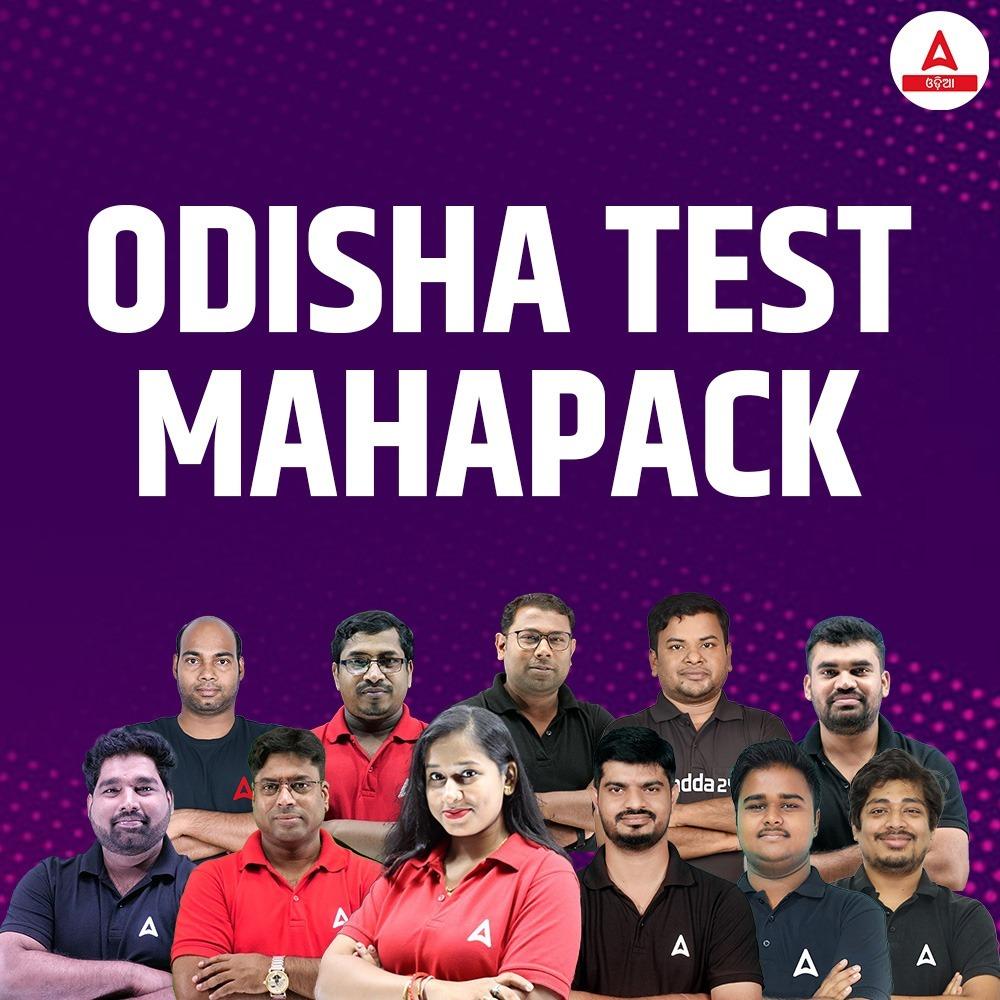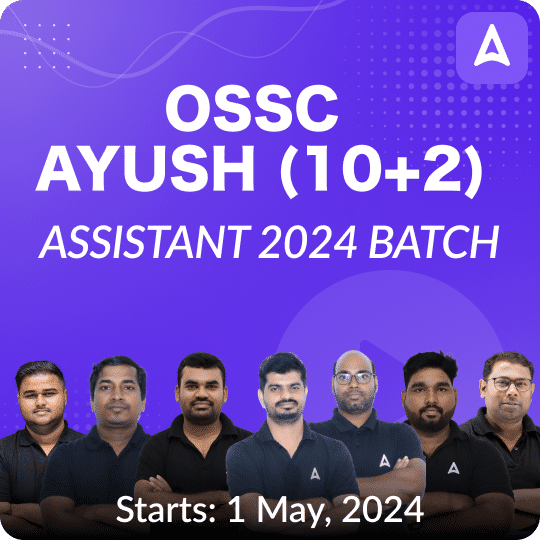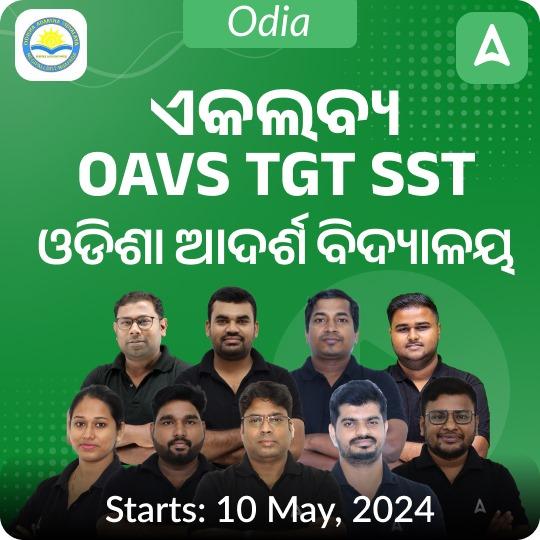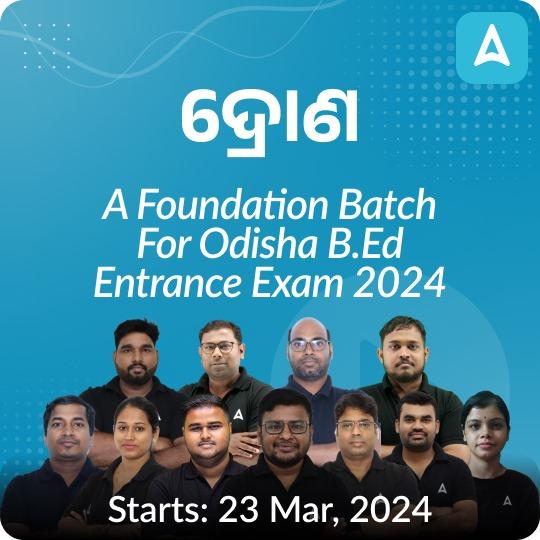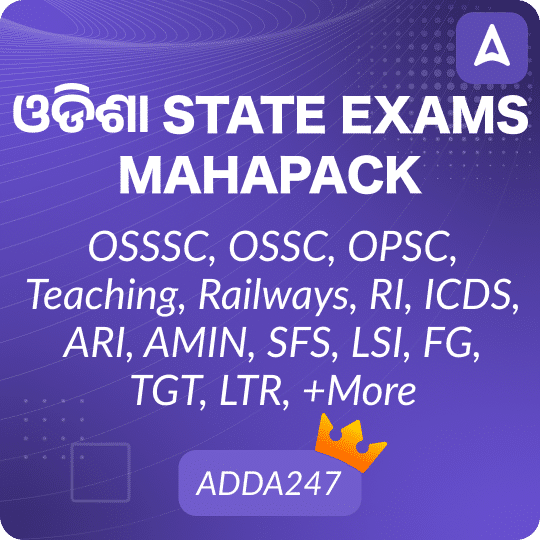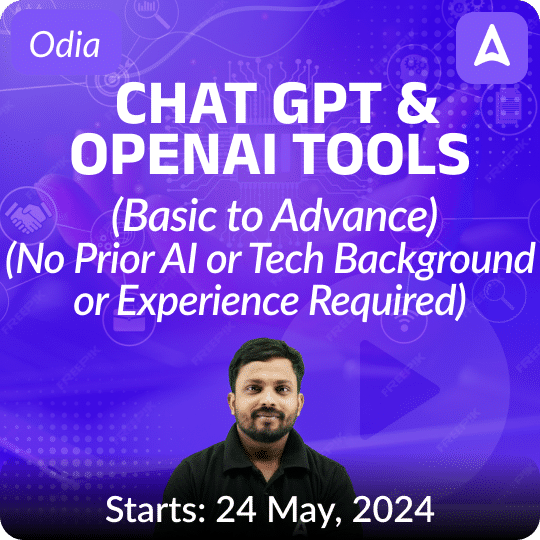Preparing for the OTET exam can be streamlined by focusing on key areas within Social Studies, such as History, Political Science, and Geography. These 30 multiple-choice questions cover crucial topics like the historical periods of the Sultanate, Mughal, and British rule, key figures and events in Indian nationalism, the structure and provisions of the Indian Constitution, and the physical and cultural geography of Odisha. By mastering these questions, candidates can enhance their understanding and increase their chances of success in the OTET exam.
Top 30 Social Studies MCQS For OTET Exam
- Who is considered the father of modern historical studies?
(a) Herodotus
(b) Thucydides
(c) Leopold von Ranke
(d) Edward Gibbon
Ans: (c) Leopold von Ranke - The market reforms during the Sultanate period were initiated by which ruler?
(a) Alauddin Khilji
(b) Firoz Shah Tughlaq
(c) Balban
(d) Iltutmish
Ans: (a) Alauddin Khilji - Who introduced the Mansabdari system in the Mughal Empire?
(a) Akbar
(b) Aurangzeb
(c) Babur
(d) Humayun
Ans: (a) Akbar - The Permanent Settlement was introduced by:
(a) Lord Wellesley
(b) Lord Cornwallis
(c) Warren Hastings
(d) Lord Dalhousie
Ans: (b) Lord Cornwallis - Which Sultan of Delhi founded the city of Tughlaqabad?
(a) Ghiyasuddin Tughlaq
(b) Muhammad bin Tughlaq
(c) Firoz Shah Tughlaq
(d) Iltutmish
Ans: (a) Ghiyasuddin Tughlaq - The dual government in Bengal was introduced by:
(a) Robert Clive
(b) Warren Hastings
(c) Lord Cornwallis
(d) Lord Wellesley
Ans: (a) Robert Clive - The English Education Act of 1835 was introduced by:
(a) Lord William Bentinck
(b) Lord Curzon
(c) Lord Dalhousie
(d) Lord Ripon
Ans: (a) Lord William Bentinck - Which Mauryan ruler is known for his rock edicts and spread of Buddhism?
(a) Chandragupta Maurya
(b) Bindusara
(c) Ashoka
(d) Brihadratha
Ans: (c) Ashoka - King Kharavela belonged to which dynasty?
(a) Maurya
(b) Chedi
(c) Gupta
(d) Pallava
Ans: (b) Chedi - Which battle prompted Ashoka to embrace Buddhism?
(a) Battle of Kalinga
(b) Battle of Taxila
(c) Battle of Hydaspes
(d) Battle of Magadha
Ans: (a) Battle of Kalinga - Who was the founder of the Ganga dynasty in Odisha?
(a) Anantavarman Chodaganga
(b) Kharavela
(c) Kapilendra Deva
(d) Narasimhadeva I
Ans: (a) Anantavarman Chodaganga - The defeat of Mukundadev by whom marked the end of the independent Odisha kingdom?
(a) Akbar
(b) Sher Shah Suri
(c) Sultan of Bengal
(d) Bahadur Shah
Ans: (b) Sher Shah Suri - Odisha became part of the Mughal Empire during the reign of which emperor?
(a) Akbar
(b) Aurangzeb
(c) Shah Jahan
(d) Jahangir
Ans: (a) Akbar - Who gave the call for ‘Do or Die’ during the Quit India Movement?
(a) Jawaharlal Nehru
(b) Mahatma Gandhi
(c) Subhas Chandra Bose
(d) Sardar Patel
Ans: (b) Mahatma Gandhi - The Treaty of Westphalia (1648) is associated with which significant event in European history?
(a) End of the Thirty Years’ War
(b) Beginning of the French Revolution
(c) Unification of Germany
(d) Collapse of the Roman Empire
Ans: (a) End of the Thirty Years’ War - Which part of the Indian Constitution deals with Fundamental Rights?
(a) Part I
(b) Part II
(c) Part III
(d) Part IV
Ans: (c) Part III - The Universal Declaration of Human Rights was adopted by the UN General Assembly in:
(a) 1945
(b) 1948
(c) 1950
(d) 1960
Ans: (b) 1948 - The Panchayati Raj system was recommended by which committee?
(a) Sarkaria Commission
(b) Balwant Rai Mehta Committee
(c) Ashok Mehta Committee
(d) Rajmannar Committee
Ans: (b) Balwant Rai Mehta Committee - The Election Commission of India is responsible for conducting elections for:
(a) Lok Sabha only
(b) Rajya Sabha only
(c) Both Lok Sabha and Rajya Sabha
(d) Lok Sabha, Rajya Sabha, and State Legislative Assemblies
Ans: (d) Lok Sabha, Rajya Sabha, and State Legislative Assemblies - The highest peak in Odisha is:
(a) Mahendragiri
(b) Deomali
(c) Similipal
(d) Chandragiri
Ans: (b) Deomali - Odisha experiences which type of climate?
(a) Arid
(b) Humid subtropical
(c) Tropical savanna
(d) Mediterranean
Ans: (c) Tropical savanna - Which state borders Odisha to the south?
(a) West Bengal
(b) Jharkhand
(c) Andhra Pradesh
(d) Chhattisgarh
Ans: (c) Andhra Pradesh - The predominant soil type in Odisha is:
(a) Alluvial soil
(b) Laterite soil
(c) Black soil
(d) Red soil
Ans: (d) Red soil - Odisha is located between which parallels of latitude?
(a) 17.49’N and 22.34’N
(b) 18.49’N and 23.34’N
(c) 16.49’N and 21.34’N
(d) 19.49’N and 24.34’N
Ans: (a) 17.49’N and 22.34’N - Which of the following is an endemic species found in Similipal National Park?
(a) Paradoxus jorandensis
(b) Panthera tigris tigris
(c) Elephas maximus
(d) Cervus elaphus
Ans: (a) Paradoxus jorandensis - Odisha is a leading producer of which mineral in India?
(a) Gold
(b) Iron ore
(c) Copper
(d) Manganese
Ans: (b) Iron ore - Which layer of the atmosphere contains the ozone layer?
(a) Troposphere
(b) Stratosphere
(c) Mesosphere
(d) Thermosphere
Ans: (b) Stratosphere - The Earth’s core is primarily composed of:
(a) Silicon and Oxygen
(b) Iron and Nickel
(c) Magnesium and Aluminum
(d) Carbon and Sulfur
Ans: (b) Iron and Nickel - Which mountain range forms the eastern boundary of the Indian subcontinent?
(a) Aravalli Range
(b) Eastern Ghats
(c) Himalayas
(d) Western Ghats
Ans: (b) Eastern Ghats - The Tropic of Cancer passes through which Indian state?
(a) Odisha
(b) Madhya Pradesh
(c) Karnataka
(d) Kerala
Ans: (b) Madhya Pradesh

